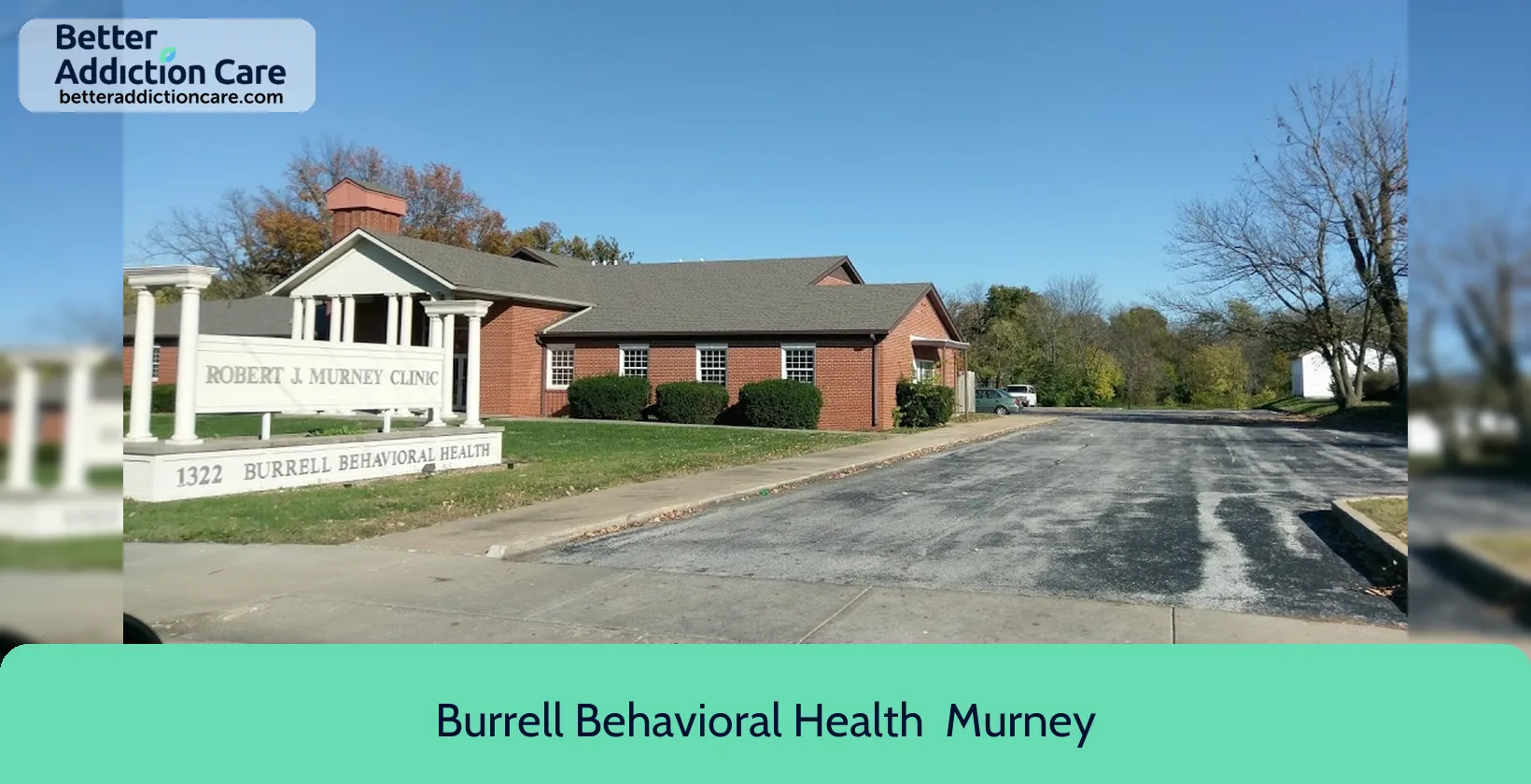Burrell Behavioral Health - Murney Clinic
Overview
Burrell Behavioral Health - Murney Clinic is a substance abuse treatment center for people seeking treatment near Greene County. As part of their treatment modalities for recovery, Burrell Behavioral Health - Murney Clinic provides 12-step facilitation, group counseling, and trauma-related counseling during treatment. Burrell Behavioral Health - Murney Clinic is located in Springfield, Missouri, accepting access to recovery (atr) voucher for treatment.
Burrell Behavioral Health - Murney Clinic at a Glance
Payment Options
- Access to Recovery (ATR) Voucher
- Medicaid
- Private health insurance
- Cash or self-payment
- Payment assistance (check with facility for details)
Assessments
- Comprehensive mental health assessment
- Comprehensive substance use assessment
- Screening for tobacco use
- Interim services for clients
- Outreach to persons in the community
Age Groups
- Adults
- Young adults
- Seniors
Ancillary Services
- Case management service
- Suicide prevention services
- Specially designed program for DUI/DWI clients
- Domestic violence services, including family or partner
- Mental health services
Highlights About Burrell Behavioral Health - Murney Clinic
7.68/10
With an overall rating of 7.68/10, this facility has following balanced range of services. Alcohol Rehabilitation: 8.45/10, Drug Rehab and Detox: 8.46/10, Insurance and Payments: 6.00/10, Treatment Options: 7.82/10.-
Drug Rehab and Detox 8.46
-
Alcohol Rehabilitation 8.45
-
Treatment Options 7.82
-
Insurance and Payments 6.00
Accreditations
State mental health department:
State mental health department accreditation refers to the process of evaluating and certifying the quality and standards of a state's mental health department, ensuring that it provides high-quality services and meets specific criteria for mental health care. The accreditation process is performed by a third-party organization and helps to improve the overall care and treatment of individuals with mental health conditions.
State department of health:

Government agencies issue State Licenses, which grant rehabilitation organizations permission to conduct their operations lawfully within specific geographic regions. Licenses needed to operate are typically determined by the type of rehabilitation program offered by the facility and its physical location.
Commission on Accreditation of Rehabilitation Facilities (CARF):

CARF accreditation is a globally recognized certification for rehabilitation and human service organizations. It signifies that an organization meets high-quality standards and is committed to providing top-level care. Achieving CARF accreditation involves a rigorous evaluation process, including on-site surveys. This accreditation enhances an organization's reputation, instills trust in clients and funders, and encourages ongoing excellence in the field.
Treatment At Burrell Behavioral Health - Murney Clinic
Treatment Conditions
- Mental health treatment
- Alcoholism
- Opioid Addiction
- Substance use treatment
- Co-occurring Disorders
Care Levels
- Intensive outpatient treatment
- Detoxification
- Halfway house
- Outpatient
- Hospital inpatient treatment
Treatment Modalities
- 12-step facilitation
- Group counseling
- Trauma-related counseling
- Individual psychotherapy
- Life Skills
Ancillary Services
Languages
- Sign language services for the deaf and hard of hearing
Additional Services
- Pharmacotherapies administered during treatment
- Mentoring/peer support
- Breathalyzer or blood alcohol testing
Special Programs
- Clients with HIV or AIDS
- Pregnant/postpartum women
- Active duty military
- Clients who have experienced trauma
- Clients with co-occurring mental and substance use disorders
Contact Information
Read our Most Recent Article About Drug Addiction
DISCLAIMER: The facility name, logo and brand are the property and registered trademarks of Burrell Behavioral Health - Murney Clinic, and are being used for identification and informational purposes only. Use of these names, logos and brands shall not imply endorsement. BetterAddictionCare.com is not affiliated with or sponsored by Burrell Behavioral Health - Murney Clinic.









